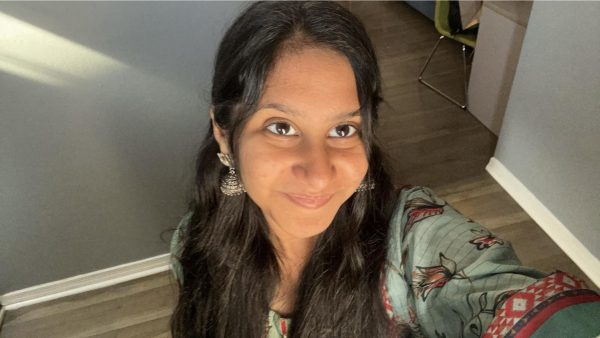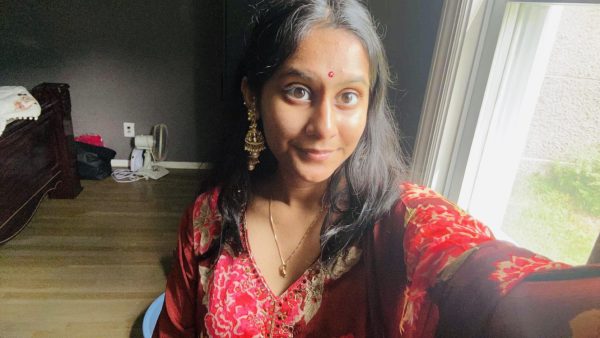The Girl and The Goddess
Book Review
February 10, 2023
Did you just say what I think you just said? A culturally embracing and tradition-infused poetry book filled with Hindu lore and legend? Sign me up. The Girl and The Goddess: Stories and Poems of Divine Wisdom is a verse novel written by poignant and talented writer Nikita Gill, who centers the prose around a young Indian girl from Kashmir in the 1900s, making it an equally compelling historical read as well.
The novel begins by introducing the protagonist: Paro, a bright, compassionate, and stubborn girl born in a time of political instability due to the partition. As her family deals with this rupture, Gill expertly has the reader follow Paro as she grows up. The book highlights all things beautiful and feminine in Paro as she evolves, intricately describing her step into womanhood and journey in self-discovery.
Paro’s character is crafted so complexly that everyone can find a piece of themselves hidden in her, making the book much more special. Gill does an excellent job incorporating Hindu traditions and myths by aptly weaving in stories of Hindu Gods and Goddesses through every defining moment in Paro’s tumultuous life. The audience gets to watch as Paro finds herself and uses the strength these stories of Gods and Goddesses give her to empower herself and embrace the darkest parts of herself.
Paro tackles many common issues seen within teenagers as well, such as insecurities, issues with body image, and even coming to terms with her sexuality. Gill’s vivid and descriptive story-telling and illustrations keep the audience engaged whilst simultaneously empowering them and teaching them the same lessons Paro learns. Paro’s journey from a young girl to a teenager to an adult is one that many people today can relate to, especially women, as this book encompasses issues women in particular must deal with. Gill demonstrates Paro battling Indian societal notions, such as the idea that the boys in the family are more important than the girls, which resonates with a lot of young girls growing up in Indian households.
This book challenges the idea that women are anything less than men by changing the narrative. Gill evaluates women’s roles in many epic Hindu tales such as the Mahabharat and the Ramayana, re-telling them by bringing the women’s point of view to light. She emphasizes the idea that these epics may have never happened without women, and the heroes we consider the greats may have never had their chance to become those heroes without the women.
One of the most important themes of this book was the idea that humans cannot learn to truly live until and unless they embrace who they are. Their body, mind, soul, sexuality, and even the darkest parts of themselves must be loved in order to fully understand and live rather than simply exist. Paro deals with figuring out she is bisexual in a time and world that was not ready to accept her. The Gods and the Goddesses did and they fueled her with the vigor she needed to find a place that loves and accepts who she is. The audience follows this young girl from Kashmir to Delhi to London.
Set during the time of India and Pakistan’s partition the novel also brings on feelings of severe patriotism, as Paro learns of India’s history. Gill recaps India’s richness and beauty, using the idea of why India was always referred to as a feminine country, often called “mother” by its inhabitants. Due to the fact that it was set in the 1900s, it is a historical fiction book that highlights the tensions not only between Pakistan and India but also between Muslims and Hindus. She preaches that love does not discriminate and neither should people.
Five decades later, many teenagers can still relate to the numerous obstacles Paro dealt with, and while they do not have these gods and goddesses to guide them through these problems this book makes the audience feel as though they do. This book tackles many serious issues such as body dysmorphia, sexual violence, sexuality, war, internalized misogyny, bullying, anxiety, and guilt. This intimate yet powerful novel, using the gods and goddesses to bolster its message, gives a voice to all those young girls told they could never be good enough simply because of their gender.
























































































